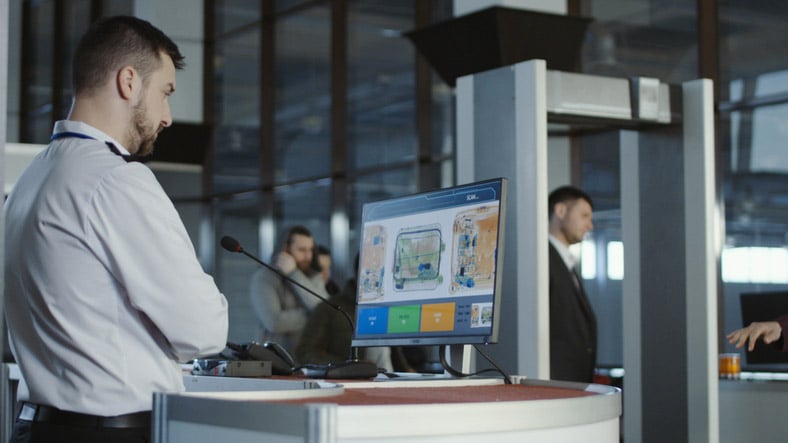RPL or Online Study?
If you’ve been out there in your field working your way up and you realise you want the qualification show for it, then the dilemma becomes do you go for it through Recognition of Prior Learning (RPL) because you have the experience or do you do the full online study, perhaps filling any gaps in your expertise?
It’s a hard decision to make. That’s why we’ve written a thorough breakdown for you below of the benefits and challenges of each pathway.
What is RPL?
RPL stands for Recognised Prior Learning.
RPL pathways are open to students who have already gained equivalent work experience in their careers that matches the criteria for particular qualifications or units of competency.
This pathway is popular with working professionals who wouldn’t gain any additional knowledge from studying the course materials and who are busy and want to bypass the studying process in favour of gaining the qualification.
How does RPL work?
To begin the process to apply for RPL you would first determine your existing skills and experience. You can have someone help you with this process by completing a free skills assessment.
You have to fill in some basic details and provide a copy of your resume and any relevant experience that applies to the qualification you would like to complete through RPL.
This is just an initial stage in which it can be determined if you are eligible for an RPL pathway. This does not necessarily mean you will be able to gain an entire qualification through the RPL process.
Our RPL assessor will review your initial skills assessment and let you know if you might be a good candidate for the RPL pathway. If you are deemed a good candidate and you enrol under RPL, the RPL assessor then creates a mapping document that will outline all the criteria you must provide evidence against to be deemed competent for the RPL.
This will basically be the knowledge evidence and performance criteria as outlined in each units of competency of the qualification you wish to achieve.
The types of evidence you might have relevant to the RPL could be as simple as emails, letters of support from employers, client proposals or other project work to show that you’ve completed work that meets the requirements.
What you might use for evidence changes depending on which qualification you are applying for and what kind of work experience you’ve had. That’s why its wise to chat with an assessor at the initial stages of your enrolment about your specific requirements.
Once you have submitted all your evidence and it has been mapped, that is essentially the RPL process complete.
What is online study and how does it work?
At Asset College, there are many qualifications offered through online, self-paced study. You may be wondering how online study actually works. Basically you’ll get assigned a trainer and have one to two units sent to you at a time to complete.
You’ll be able to work through the units and do the projects and submit them to your trainer for marking at your own pace. If you have any questions, you can always schedule in catch ups with your trainer.
The great thing about doing online self-paced study is that you’re not beholden to a scheduled timetable. So, you can fit your studies in around your work or life, making it a very flexible option.
And because it’s self-paced, you can finish the work quicker if you have the time and dedication without having to wait for the next term to begin.
Pros and Cons of RPL
The great thing about RPL is if you already have the experience and the evidence, it can a very a quick process. Usually taking only weeks to a couple of months to complete all the paperwork and get the qualification.
It is also cheaper at almost half the cost of full study usually. It is a great option if you need the qualification in a flash.
One of the main cons of RPL is that it can end up being a harder process than online study if you are struggling to find the evidence. Usually students who work for government departments or where there work contains sensitive information will find it difficult to provide enough evidence to satisfy the RPL requirements.
You must be able to share information of your work tasks with third parties in order to participate in RPL. And if you don’t have enough evidence to complete some units through the RPL process, you will need to complete them through full study.
Pros and Cons of Online Study
Completing the entire qualification through online self-paced study can be beneficial even if you have some experience in the field. Often what we do in practice might not be the process taught to us for best practice. Studying the complete course means you get the full understanding of the qualification and how they recommend you do something even if it’s not how you actually do it in the field.
However, it is generally more expensive to complete the course through full study than RPL but some RTOs like ASSET can provide you with pay as you go options so you pay off your qualification as you progress. It may get frustrating learning something you already know, if you’ve done some task 100 times for work but you also end up doing for the course it can be a bit of drag. The RPL process can fix that frustration.
Both pathways have their pros and cons but it comes down to a few simple things; money, time and evidence.
If you think you’re thinking about completing a course through RPL you can complete our free skills assessment here.
Or if you’re not sure and want to discuss the full study options you can have a chat with one our friendly course advisors.




